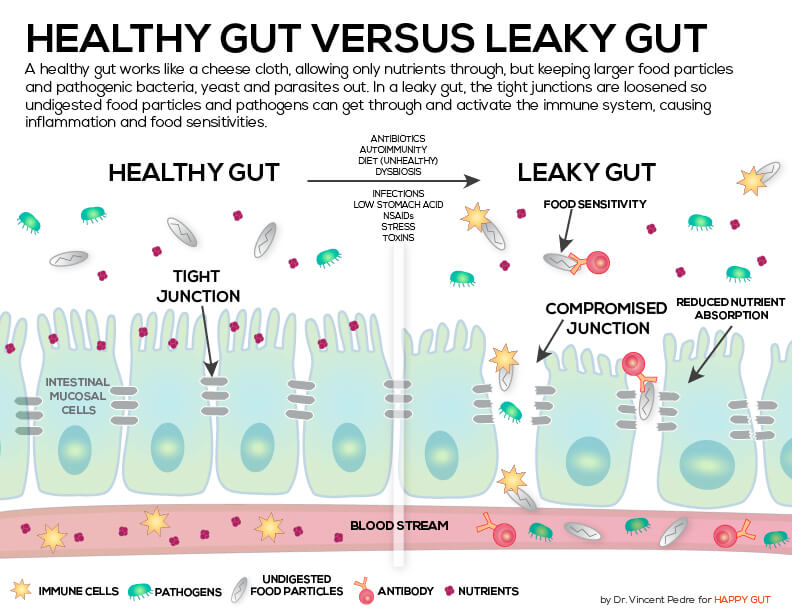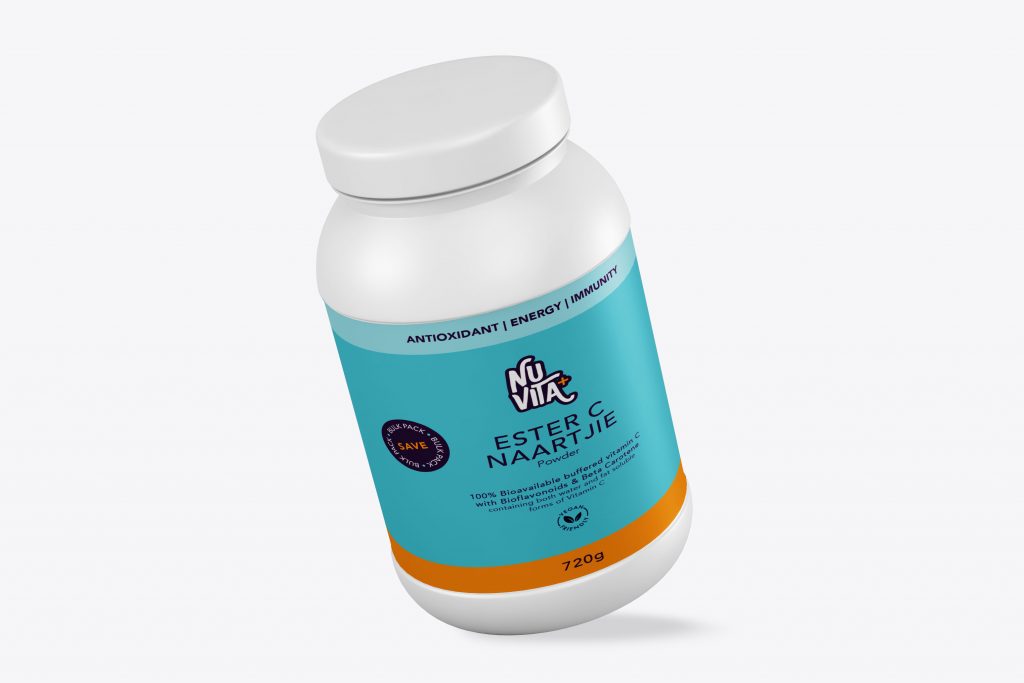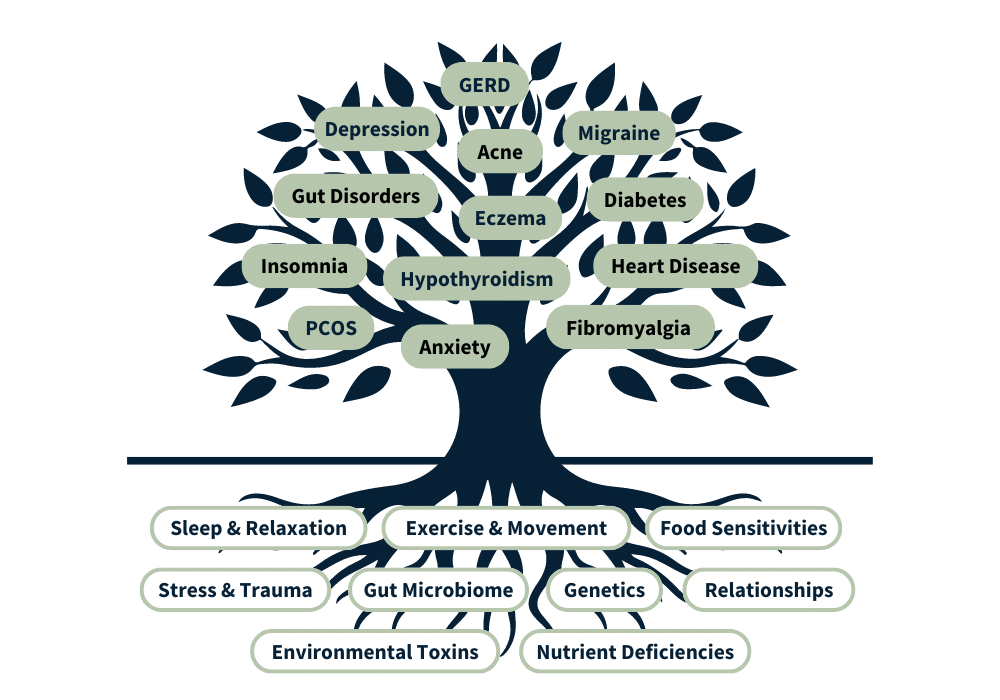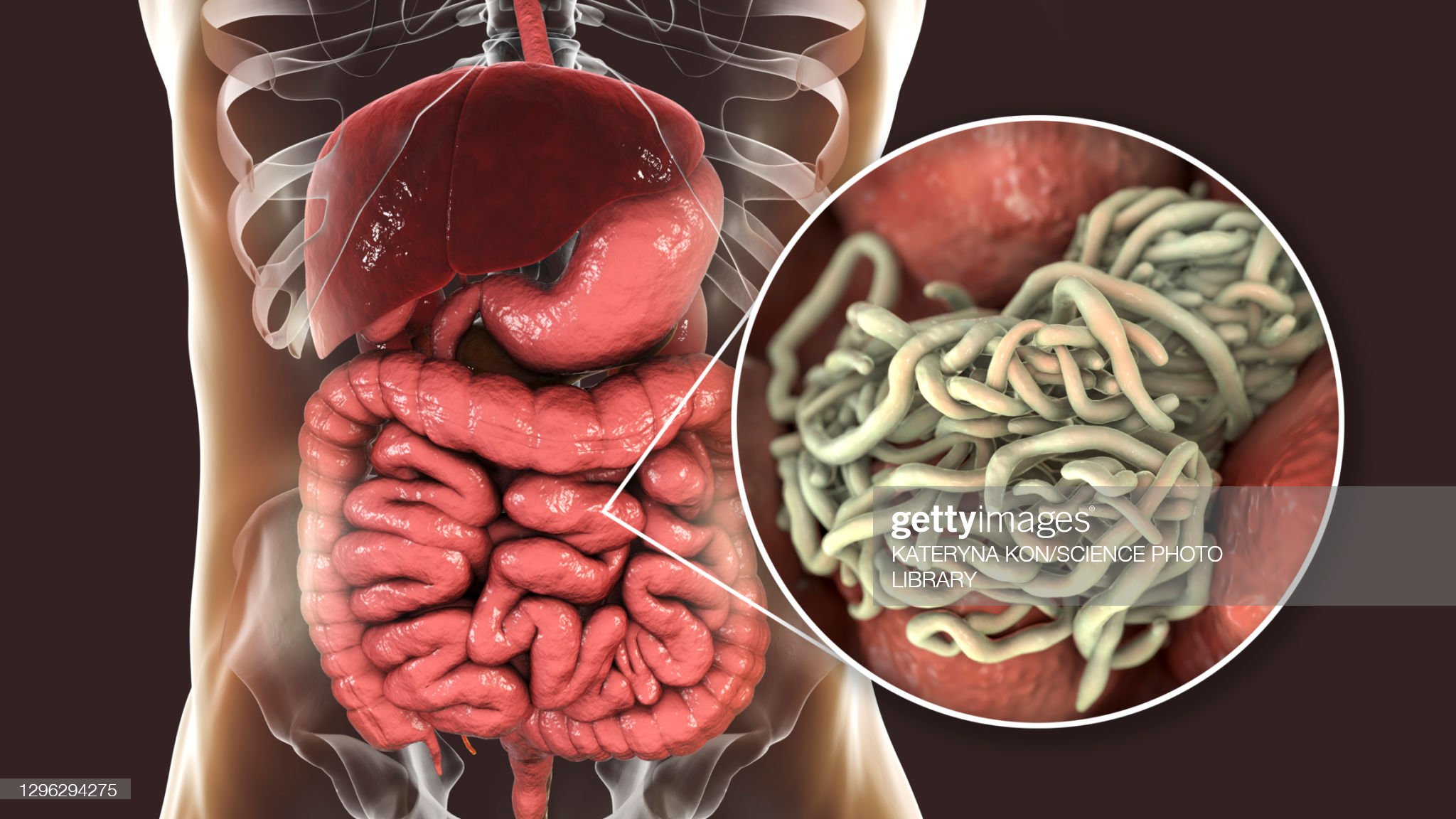
In the world of health and wellness, the term “leaky gut” is becoming increasingly familiar. Also known as increased intestinal permeability, it refers to a condition where the lining of the gastrointestinal tract becomes more porous. This increased permeability allows unwelcome guests like bacteria, toxins, and undigested food particles to make their way into the bloodstream. It’s a bit like a fortress wall with cracks, allowing invaders to infiltrate.
The consequences of leaky gut can be far-reaching, impacting various aspects of your health:
1. Immune System Activation: When foreign substances infiltrate your bloodstream, your immune system springs into action. This constant immune response can lead to chronic inflammation, a known contributor to various health issues.
2. Systemic Inflammation: Leaky gut is associated with systemic inflammation, which can affect organs and tissues throughout your body. This chronic inflammation is closely linked to autoimmune disorders, making it a significant concern.
3. Food Sensitivities: Undigested food particles entering your bloodstream can trigger food sensitivities or allergies, leading to symptoms like digestive problems, skin issues, and more.
4. Autoimmune Diseases: Researchers are exploring the connection between leaky gut and autoimmune diseases. The constant exposure to foreign substances might cause an overactive immune system to turn against your body’s own tissues.
5. Digestive Problems: Leaky gut can contribute to digestive issues, including bloating, diarrhea, and abdominal pain.
6. Nutrient Absorption: A compromised gut barrier can reduce the absorption of vital nutrients, potentially causing nutrient deficiencies.
7. Mood and Mental Health: Emerging research suggests a link between gut health and mental health conditions like depression and anxiety. The gut-brain connection plays a significant role in this intricate relationship.
8. Chronic Health Conditions: Certain chronic health conditions, such as irritable bowel syndrome (IBS), Crohn’s disease, and rheumatoid arthritis, may worsen or be influenced by leaky gut.
While the concept of leaky gut is widely discussed, it’s essential to note that it’s still an area of ongoing research, and not all medical professionals agree on its significance in various health conditions. However, the potential consequences are undeniable.
So, why do people continue to struggle with leaky gut, trying various allopathic medicines with no resolution in sight? The answer may lie in the intricate web of factors contributing to this condition.
Dietary Factors
- Processed Foods: Diets high in processed and refined foods, often laden with additives and preservatives, may contribute to gut inflammation and permeability.
- Excessive Sugar: High sugar intake can disrupt the balance of gut bacteria (microbiota) and promote the growth of harmful bacteria.
- Gluten: Some individuals, especially those with celiac disease or non-celiac gluten sensitivity, may experience increased intestinal permeability in response to gluten.
- Alcohol: Excessive alcohol consumption can irritate the gut lining and disrupt the balance of gut microbiota.
Medications
- Non-Steroidal Anti-Inflammatory Drugs (NSAIDs): Prolonged use of NSAIDs like ibuprofen may damage the gut lining and contribute to leaky gut.
- Antibiotics: Frequent or long-term use of antibiotics can disrupt the gut microbiota, potentially leading to increased permeability.
- Proton Pump Inhibitors (PPIs): These medications, used to reduce stomach acid production, may affect gut health when used for an extended period.
Stress
Chronic stress can influence gut function and may lead to changes in gut permeability.

Infections and Microbial Imbalance
- Bacterial Overgrowth: An overgrowth of specific bacteria in the small intestine, known as SIBO (Small Intestinal Bacterial Overgrowth), can disrupt gut function.
- Parasitic Infections: Infections with parasites can damage the intestinal lining and affect permeability.
- Dysbiosis: An imbalance in the gut microbiota, characterized by an overgrowth of harmful bacteria and a decrease in beneficial ones, may contribute to gut issues.
Inflammatory Conditions
Inflammatory Bowel Disease (IBD): Conditions like Crohn’s disease and ulcerative colitis involve inflammation of the intestinal lining, which can increase permeability.
Autoimmune Diseases
Some autoimmune diseases, such as type 1 diabetes and rheumatoid arthritis, may be linked to leaky gut, but the exact relationship is still being studied.
Environmental Factors
Toxins and Pollutants: Exposure to environmental toxins and pollutants may contribute to gut inflammation and permeability.
Genetics
Some individuals may have genetic factors that predispose them to gut-related issues, including leaky gut.
Food Allergies and Sensitivities
Allergic reactions to certain foods, as well as food sensitivities, can lead to inflammation in the gut.
Food Allergies: In some cases, your body’s security team might mistake harmless foods for dangerous threats. When this happens, it triggers an allergic reaction, which is like a security alarm going off. Your body goes into full alert mode, causing various symptoms like hives, difficulty breathing, and digestive distress. These are immediate and intense responses.
Food Sensitivities: On the other hand, food sensitivities are like the guards being on high alert, but not to the point of sounding a full alarm. When you have a food sensitivity, your body may react more subtly, yet consistently, to certain foods. This can lead to a more prolonged state of low-grade inflammation. Think of it as the guards being extra watchful without the sirens and flashing lights.
- Testing: To determine if you have food allergies or sensitivities, there are several tests available. These tests often involve blood work or skin tests to identify specific food triggers. Once we run a test, we might recommend an elimination diet, where you remove suspected foods from your diet and gradually reintroduce them to see how your body reacts.
Altered Gut Motility
Imagine your digestive system as a well-orchestrated journey for food. Food enters your mouth, travels through a winding path, and eventually exits your body. This process relies on a finely tuned system that ensures everything moves at the right pace.
Gut Motility: It’s like the transportation system of your gut. Your digestive organs work together to move food and waste through your body. Everything flows smoothly as long as this system operates efficiently.
Gastroparesis: Imagine there’s a slowdown in the transportation system. Gastroparesis is a condition where your stomach doesn’t empty as it should. It’s like a traffic jam in your stomach. Food stays there longer than it should, leading to symptoms like bloating, nausea, and discomfort.
Slowed Intestinal Transit: As food moves through your intestines, it’s as if there’s a conveyor belt ensuring a steady pace. When your intestinal transit slows down, it’s like the conveyor belt has a glitch. This can lead to constipation and other digestive problems.
Testing: If you suspect issues with gut motility, we run tests like gastric emptying scans to diagnose conditions like gastroparesis. For slowed intestinal transit, tests such as transit studies can provide insights into the issue. These tests help understand what might be causing the slowdown in your digestive system, allowing for appropriate treatment.
The causes of leaky gut can be interconnected, creating a complex web of factors that contribute to this condition. For individuals struggling with the consequences of leaky gut, the ongoing pursuit of relief can be frustrating, especially when allopathic medicines fail to provide a lasting solution.
Natural medicine offers a promising path to healing leaky gut. It focuses on addressing the root causes of the condition, promoting a balanced and healthy gut microbiome, and repairing the intestinal lining. By nourishing the body with the right foods and supplements, and making lifestyle adjustments that reduce inflammation and stress, individuals can embark on a journey toward true healing.
While the road to healing leaky gut can be challenging, it is entirely possible with natural medicine. This holistic approach offers a ray of hope to those who have struggled for too long. The intricate dance between diet, lifestyle, stress management, and the gut microbiome holds the key to addressing the root causes of leaky gut and achieving lasting relief. In this journey towards wellness, natural medicine can be your guiding light, leading you to a healthier, happier life.








